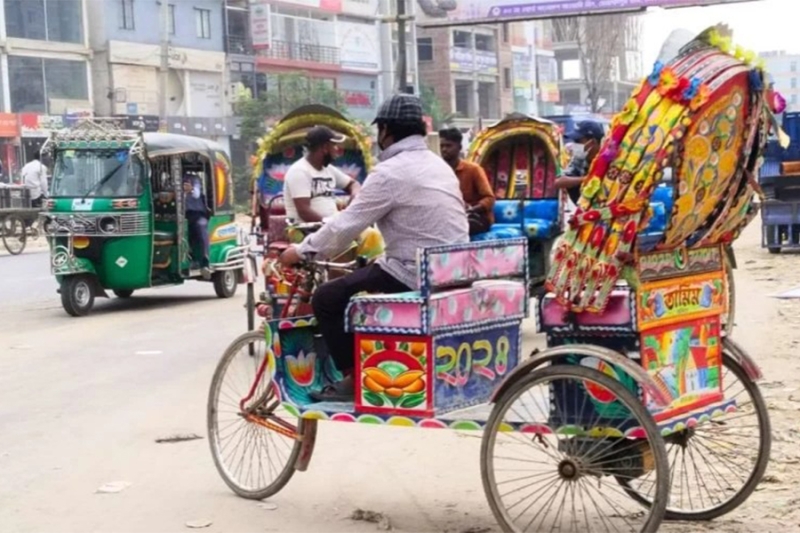- US Issues Travel Alert for Bangladesh Ahead of Election |
- Air ambulance carrying bullet-hit Hadi flies for Singapore |
- Can Dhaka’s arms recovery drive ensure peaceful polls? |
- ‘Unhealthy’ air quality recorded in Dhaka Monday morning |
- BD peacekeepers' deaths: UN chief calls Dr. Yunus, offers condolence |
Govt Plans Tougher Rules for Battery-Run Rickshaws

The government is set to introduce a tougher policy to bring order to the chaotic and unsafe operation of battery-run rickshaws, also known as electric auto-rickshaws or easy bikes, which have proliferated across Bangladesh, including the capital Dhaka. These unregulated vehicles, often lacking fitness and driven by unlicensed operators, have contributed to worsening traffic congestion and growing safety concerns in both cities and highways.
Despite repeated efforts to remove them from key roads, especially in Dhaka, authorities have faced resistance from drivers and owners. Protests and demonstrations have stalled enforcement, leaving the roads in disarray. The Bangladesh Road Transport Authority (BRTA) estimates that over six million battery-run rickshaws are operating across the country, with up to 1.2 million in Dhaka alone—many of which are unregistered and unregulated.
In response to this growing problem, the Road Transport and Highways Division under the Ministry of Road Transport and Bridges has drafted the Electric Three-Wheeler Management Policy 2025. The proposed policy mandates that all battery-operated three-wheelers be registered with the BRTA and operated only by drivers with valid licenses. To ensure road safety and better traffic management, the policy limits the vehicles to designated local routes, explicitly banning them from national highways, except for service lanes.
Speed limits will be introduced, with medium-speed vehicles restricted to 50 km/h and low-speed ones capped at 30 km/h. Additionally, the policy sets an ownership limit, allowing one individual to own a maximum of three medium-speed and five low-speed rickshaws. Importantly, all existing rickshaws must be converted to safer models within a year of the policy’s implementation.
The draft also aims to regulate the quality and safety of vehicles. All components—from motors and gearboxes to brakes and batteries—must be approved by the Bangladesh Standards and Testing Institution (BSTI), and only new, BSTI-certified vehicles and parts can be imported or assembled. Manufacturers and assemblers must register with the Bangladesh Investment Development Authority (BIDA), and be listed by the BRTA before operating legally.
Fare regulation will fall under BRTA's authority, while vehicle owners must display their contact information, along with the driver’s, for passenger safety and accountability. Charging stations must adhere to the Power Division’s 2021 guidelines. Additionally, BRTA will organise training for drivers at the district level, in coordination with local transport committees.
The draft policy also calls for a complete phase-out of unauthorised, locally made vehicles such as diesel- and petrol-run three-wheelers, commonly used in agriculture and riverine areas. These will be replaced by approved electric alternatives, as determined by local transport committees.
Violations of the new rules will be dealt with under the Road Transport Act 2018, and legal action will be taken against offenders. The policy also reiterates a previously established deadline under the Electric Motor Vehicle Registration and Operation Policy 2023, stating that all current low-speed vehicles must be upgraded to safe models within one year. After this period, unapproved vehicles will face legal consequences.
Road Transport and Highways Division Secretary Ehsanul Haque told media that stakeholder feedback is currently being reviewed. “We hope the policy will be approved very soon. Once implemented, it will end the ongoing disorder caused by unregulated electric rickshaws,” he said.

